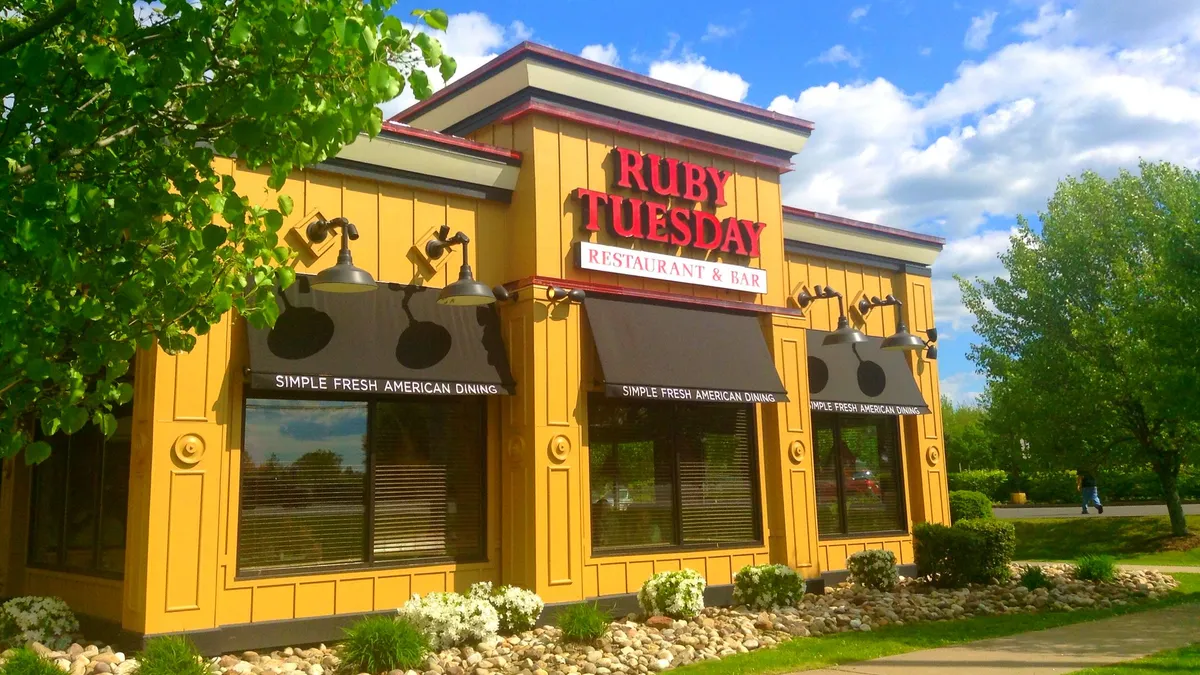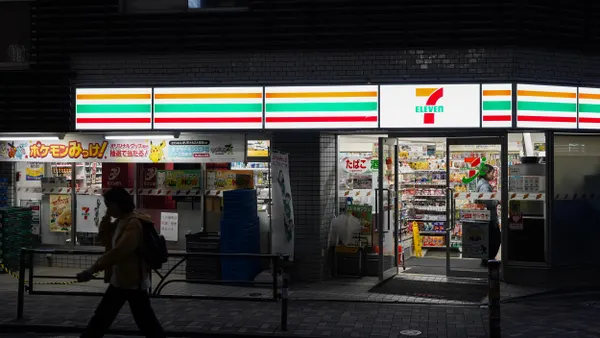Dive Brief:
- Ruby Tuesday instructed Regions Bank to stop paying pensions to at least 112 retirees as of July 21, only to declare insolvency on Sept. 2, according to documents obtained by Business Insider. The agreement between Regions and Ruby Tuesday shows that the chain needed to let the bank know of its insolvency prior to ending pension payments per its agreement, and the trustee filed a lawsuit against the chain on Sept. 28 asking a court if these actions were legal.
- The restaurant declined to respond to Business Insider's request for comment, but an August letter from the company's HR department said the company, which retired employees claim never informed them of these changes, would resume payments as soon as possible.
- Ruby Tuesday has been struggling for many years, culling weaker units since NRD Capital bought the casual dining chain in 2017, and dining room closures during the pandemic certainly haven’t helped. As of August, Ruby Tuesday has closed 150 restaurants, but didn’t notify some employees ahead of the closures. And while it received a Paycheck Protection Program Loan, the restaurant stopped paying rent April through June, according to Restaurant Business.
Dive Insight:
The pandemic has accelerated sales declines at many casual chains that were struggling even before dining rooms closed. Ruby Tuesday's sales, which were once over $1 billion, have been on the decline for several years, decreasing by over 11% in 2019 to an estimated $731 million, according to Technomic data. The number of units have also been sharply declining since NRD bought the chain in 2017, and closures bring the chain to between 270 and 300 restaurants as of May, according to Restaurant Business.
The chain brought on Ray Blanchette as its CEO in 2018 to help direct a turnaround, which was originally expected to include menu innovation while steering away from investing too much in technology and third-party delivery to focus on what’s occurring inside the restaurant, according to CNBC. The company pivoted from Blanchette's early tech strategy in 2019, when the restaurant added third-party delivery through DoorDash and Grubhub to try and capture millennials. Blanchette left the company just after nine months as its top executive.
But any turnaround strategy has yet to make a difference on consumer sentiment, with Ruby Tuesday among the casual chains to score low on customer satisfaction ratings in American Customer Satisfaction Index Restaurant Report 2019-2020, which was conducted just before the pandemic hit.
The chain did act swiftly to try and appeal to changing consumer demands during the pandemic, expanding community relief efforts such as providing ways for guests to donate meals to struggling Ruby Tuesday employees, according to a press release emailed to Restaurant Dive. In April, the chain offered items from its pantry to consumers and later offered free delivery through the month of May.
But the longer dining rooms remain closed or at limited capacity, the longer chains like Ruby Tuesday will struggle to recoup sales. Casual chains like California Pizza Kitchen and Chuck E. Cheese's parent company have already declared bankruptcy, and the latest news about an insolvent pension fund and its lack of communication to its current and retired employees doesn't necessarily bode well for Ruby Tuesday.
Clarification: Ray Blanchette left Ruby Tuesday in October 2018, nine months after he started his post as CEO.












